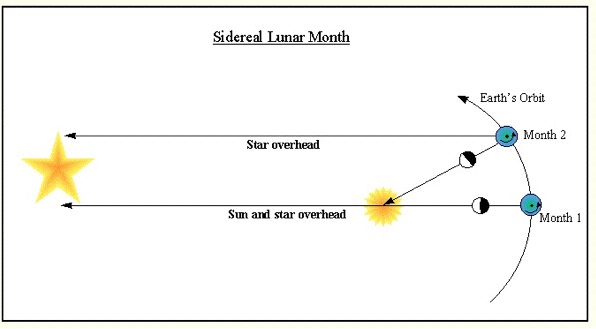Well Free, I don't know so I'm not sure why you would assume I would.
Go ahead and let me know what these significant difficulties are. I'm listening.
I assumed because anyone who has even briefly looked into the genealogies for dating should have come across the problems with them.
The best evidence supports the idea that the genealogies are open, that is, there are gaps despite appearing that they are closed (no gaps). For instance, a comparison of Matt 1:8 and 1 Chr 3:11-12:
1Ch 3:11 Joram his son, Ahaziah his son, Joash his son,
1Ch 3:12 Amaziah his son, Azariah his son, Jotham his son,
Mat 1:8 and Asaph the father of Jehoshaphat, and Jehoshaphat the father of Joram, and Joram the father of Uzziah,
It is important to note a few of things:
1. Azariah is most commonly known as Uzziah.
2. There are three missing generations in Matt 1:8,
despite the clear statement "Joram the father of Uzziah".
3. The Greek
gennao, "the father of," can also mean "forefather" or "ancestor," and the Greek
ben, "son," can also mean "descendant" (Jesus son of David, although there are at least 31 generations between).
Looking at another example:
1Ch 6:6 Uzzi fathered Zerahiah, Zerahiah fathered Meraioth,
1Ch 6:7 Meraioth fathered Amariah, Amariah fathered Ahitub,
1Ch 6:8 Ahitub fathered Zadok, Zadok fathered Ahimaaz,
1Ch 6:9 Ahimaaz fathered Azariah, Azariah fathered Johanan,
1Ch 6:10 and Johanan fathered Azariah (it was he who served as priest in the house that Solomon built in Jerusalem).
1Ch 6:11 Azariah fathered
Amariah, Amariah fathered Ahitub,
1Ch 6:12 Ahitub fathered Zadok, Zadok fathered Shallum,
1Ch 6:13 Shallum fathered Hilkiah, Hilkiah fathered Azariah,
1Ch 6:14 Azariah fathered Seraiah, Seraiah fathered Jehozadak;
Ezr 7:1 Now after this, in the reign of Artaxerxes king of Persia, Ezra the son of Seraiah, son of Azariah, son of Hilkiah,
Ezr 7:2 son of Shallum, son of Zadok, son of Ahitub,
Ezr 7:3 son of Amariah, son of Azariah, son of Meraioth,
Ezr 7:4 son of Zerahiah, son of Uzzi, son of Bukki,
To make it easier to see, we can rewrite them as follows:
Uzzi fathered
Zerahiah, who fathered
Meraioth, who fathered Amariah,
who fathered Ahitub, who fathered Zadok, who fathered Ahimaaz,
who fathered Azariah, who fathered Johanan, who fathered
Azariah (it was he who served as priest in the house that Solomon built in Jerusalem).
who fathered
Amariah, who fathered
Ahitub, who fathered
Zadok,
who fathered
Shallum, who fathered
Hilkiah, who fathered
Azariah,
who fathered
Seraiah,
Uzzi fathered Zerahiah, who fathered Meraioth, who fathered Azariah,
who fathered Amariah, who fathered Ahitub, who fathered Zadok,
who fathered Shallum, who fathered Hilkiah, who fathered Azariah,
who fathered Seraiah.
It is easy to see that Ezra omits 6 generations.
When we compare Genesis 5 and 11 to 1 Chr 1:1-28 and Luke 3:34-38, they are identical,
except that Luke 3:37
adds "the son of Cainan," an extra generation in between Arphaxad and Shelah/Salah, who is not mentioned in the OT genealogies. With no textual reason for omitting Cainan from Luke, we either have to accept that Luke erred or that the genealogies in Gen 5 and 11 aren't closed.
But despite all that, some interesting and implausible things arise if we accept the genealogies as closed:
First, Adam would have been a contemporary of Noah's father, Lamech. Second, Abraham missed being a contemporary of Noah's by two years. Third, and more implausible, Nahor, the grandfather of Abraham, died before his great, great, great, great, great, great grandfather Noah. Fourth, Isaac would have been born fifty years before Shem died.
Then there are population difficulties. Numbers 3:19, 27-28 says that the four sons of Kohath gave rise to the families of the Amramite, Isharites, Hebronites, and Uzzielites, of which the males alone numbered 8600 only one year after the Exodus. This means that the grandfather of Moses had in the lifetime of Moses 8600 male descendants alone, 2750 of whom were between the ages of thirty and fifty (Num 4:36).
Levi's son Kohath was born before Jacob's descent into Egypt (Gen 46:11) where Israel stayed for 430 years (Exod 12:40,41). Since Moses was 80 years old at the time of the Exodus (Exod 7:7), he must have been born more than 350 years after Kohath. Yet Kohath was Moses' grandfather (1 Chron 6:1-3). This would make the generation between Kohath and Moses 350 years long when the life span of Moses' period had already diminished to 120.
And very importantly, nowhere does the Bible even suggest a summation of the numbers listed in Genesis 5 and 11. The Bible itself never uses the Genesis 5 and 11 genealogies for any chronological statement. Whereas we are given the time in Egypt and the time from the Exodus to Solomon, we are never given the time from Creation to Abraham.
All that (with the exception of rewriting the passages from Ezra and 1 Chron) is taken from the
Baker Encyclopedia of Christian Apologetics, by Norman Geisler, pp 267-269. All Bible passages from the ESV.
In summation then, there is no biblical reason to accept the Genesis genealogies as giving us a chronology of even the age of human existence, much less the age of life, the age of the Earth or the age of the universe (all different things).






